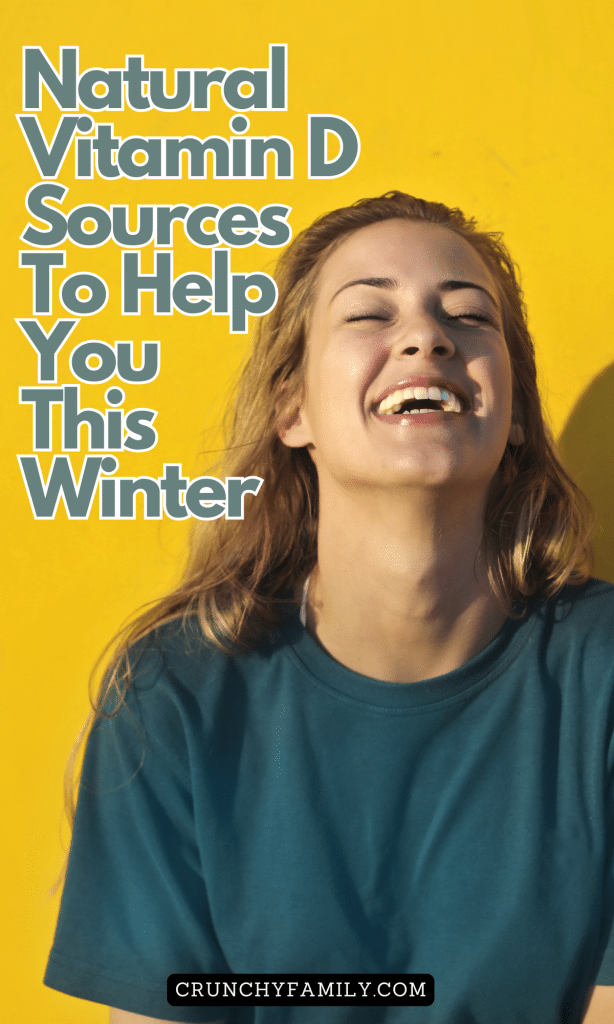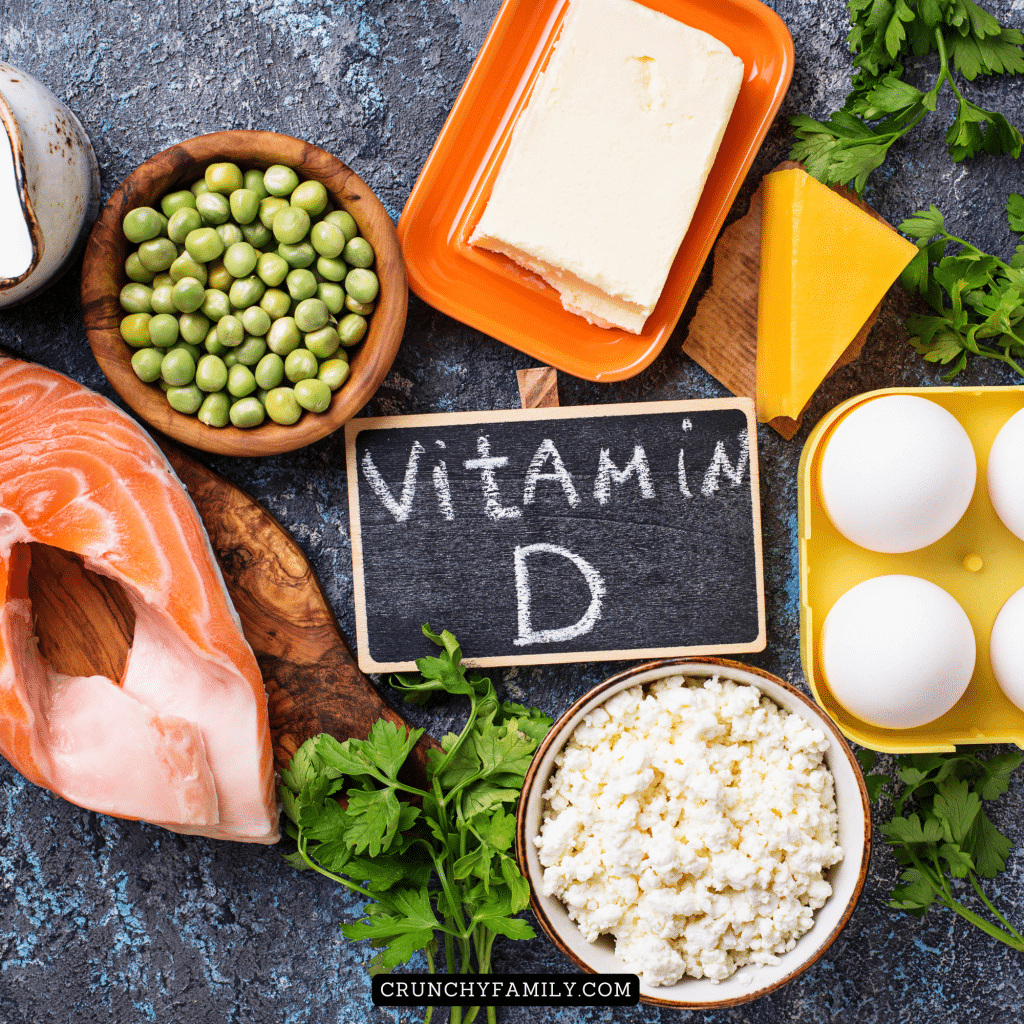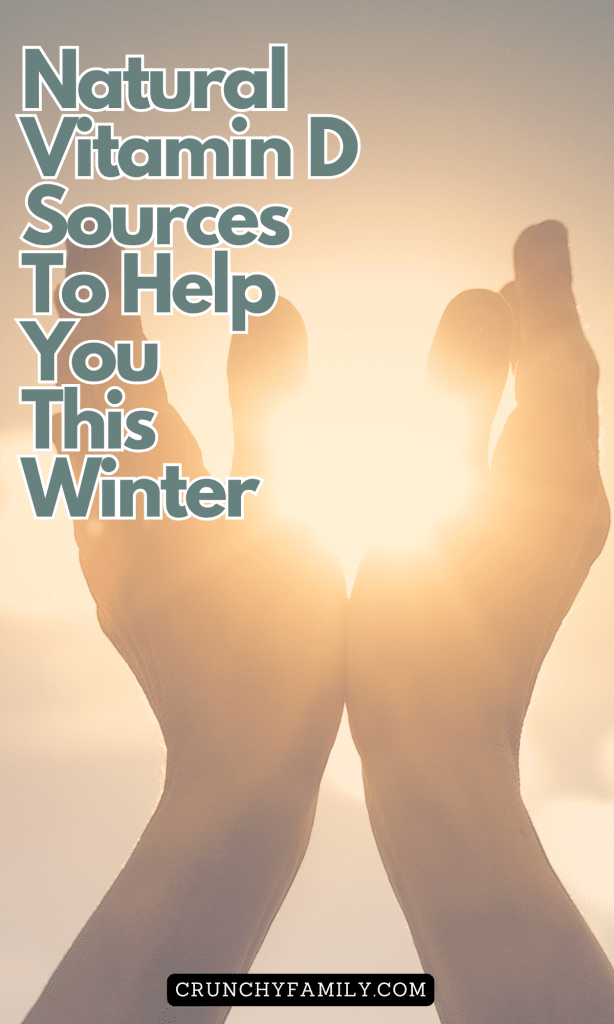As someone who grew up in a tropical country, moving to the UK made me quickly realize just how much sunshine can impact your well-being. Back home, even on “cloudy” days, there’s a sense of warmth and brightness that fills you with energy.
Here in the UK, though, the shorter, darker winter days can feel like they drain a bit of your vitality and, for me, one of the biggest culprits is the lack of vitamin D.

This “sunshine vitamin” isn’t just good for bone health; it also plays a huge role in our mood and energy levels. So, as winter approaches, let’s explore some natural ways to get that vitamin D boost and keep our spirits up!
Why Vitamin D Matters in the Winter
Vitamin D does so much more than most people realize. Known mainly for supporting bone health, it also helps with immune function, reduces inflammation, and can even have a positive effect on mood.
Many studies link low levels of vitamin D to seasonal affective disorder (SAD), a form of depression that typically hits during the winter months. So, keeping your vitamin D levels up isn’t just about staying physically healthy; it’s about feeling mentally balanced and uplifted.
Natural Sources of Vitamin D

When the sunlight starts to fade, there are still ways to ensure we get our vitamin D naturally, whether through diet, a few smart lifestyle adjustments, or simply knowing where to look.
1. Sunshine (When You Can Get It!)
- Even though we might not get the tropical sunshine I grew up with, the sun in the UK can still give us a vitamin D boost on those occasional clear days. Bundle up and spend a bit of time outside during midday when the sun’s rays are the strongest. Even a short 15-20 minutes can make a difference, especially if your face and hands are exposed to the light.
2. Fatty Fish
- Fatty fish are among the richest dietary sources of vitamin D. Salmon, mackerel, and sardines aren’t just delicious; they’re packed with healthy fats and vitamin D. Fresh or canned, these options are a great way to incorporate more vitamin D into your diet. Plus, they’re versatile! Try grilled salmon with a winter vegetable medley, or add mackerel to your salad for a tasty, warming lunch.
3. Egg Yolks

- Eggs, especially the yolks, are a convenient source of vitamin D. If possible, go for free-range or pasture-raised eggs, as they tend to contain higher levels of vitamin D due to the hens’ exposure to sunlight. Eggs are so versatile — you can have them scrambled, poached, in a hearty omelet, or as an addition to soups for a comforting winter meal.
4. Mushrooms
- Mushrooms are a surprising plant-based source of vitamin D. They naturally produce it when exposed to sunlight, just like we do. If you can find mushrooms that have been exposed to UV light (often labeled as such in grocery stores), they’ll provide an even bigger vitamin D boost. Include them in soups, stews, or stir-fries for an easy way to get a veggie-based dose of vitamin D.
5. Fortified Foods

- Many everyday foods are fortified with vitamin D, including certain types of milk (both dairy and plant-based varieties like almond or soy milk), orange juice, and some cereals. This is a practical option, especially if you’re looking to boost vitamin D intake through what you’re already eating. Just check the labels to make sure they contain added vitamin D.
6. Cod Liver Oil
- Not everyone’s favorite due to its strong taste, but cod liver oil is a powerhouse when it comes to natural vitamin D. It’s also rich in omega-3 fatty acids, which are excellent for heart health and reducing inflammation. If you’re not keen on the taste, many brands offer capsules, which make it much easier to incorporate into your routine.
Tips for Boosting Vitamin D Naturally
While getting vitamin D from foods is great, there are other lifestyle changes you can try as well:

- Spend time outdoors: Even if it’s cold, try to go for a walk during daylight hours. A short stroll around your neighborhood, park, or even a bit of time in your garden can make a difference.
- Consider supplements: If you’re worried about not getting enough vitamin D, especially in the winter months, talk to your doctor about a vitamin D supplement. It’s a simple solution to ensure you’re getting enough.
- Look at your diet as a whole: Aim to eat a balanced diet that includes a variety of foods rich in vitamin D, healthy fats, and plenty of leafy greens and colorful veggies. They’ll support your immune system, giving you a better foundation for feeling good throughout the winter.
Winter doesn’t have to mean low energy and gloomy moods. With a few natural sources of vitamin D and small lifestyle tweaks, you can keep your levels up and stay bright all season long.

Whether it’s stepping outside, adding a little extra salmon to your plate, or even experimenting with UV-exposed mushrooms, there are plenty of options to suit different lifestyles.
More related reads:
- All Natural Hair Detangler Spray to Make at Home
- Homemade DIY Coffee Scrub for Acne (Face & Body)
- DIY Natural After Sun Spray
- Simple Homemade Calendula Soap Recipe
- Benefits Of Apple Cider Vinegar For Curly Hair
- Homemade DIY Coffee Scrub for Acne (Face & Body)
- Natural Sea Moss Sugar Scrub Recipe
- Homemade Jasmine and Rose Petal Soap Recipe
- DIY Bergamot Green Tea Soap Bar
- Top 5 Benefits Of Sea Moss For Skin and Hair
- The Benefits Of Coconut Oil In Natural Hair
- Apple Cider Vinegar, Garlic, and Honey: Miracle Home Remedy
- Natural Remedies for Treating Fever in Toddlers
1 thought on “Natural Vitamin D Sources To Help You This Winter”